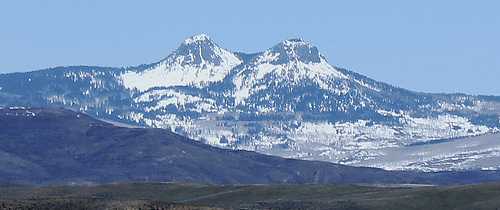‘Does she think she’s part Navajo now?’

(Ben Sellers, Liberty Headlines) Sen. Elizabeth Warren, D-Mass., may be most notable for her zeal to nationalize privately-owned commercial interests and for her past appropriation of American Indian heritage.
In a recent announcement, she found a way to do both at once.
Warren outlined her official public-lands plan Monday in a blog post via Medium.
In it, she pledged to re-instate one of Obama’s twilight executive fiats, turning roughly 2 million acres of private or state-owned property around Utah’s Bear’s Ears National Monument into federally controlled parkland.
One of President Donald Trump’s early acts was to restore the park’s original boundaries, noting that the U.S. Antiquities Act directed the federal government to appropriate the bare minimum of private lands needed in its preservation efforts.
The area taken by Obama had value not only to the cattle ranchers and farmers who occupied it, but also for its largely undeveloped uranium and fossil-fuels deposits.
Obama claimed to be using his authority to preserve the grounds of certain Navajo Indian tribes—even though many never asked for it.
While some environmental activist groups had pushed for the land grab under the auspices that it was sacred Indian territory, other people with actual ties to the region said the claim on an area outside reservation boundaries was at best tenuous.
San Juan County Commissioner Bruce Adams mocked Warren for hopping on the bandwagon, reported the Deseret News.
“Does she think she’s part Navajo now?” he asked.
Adams said nearly 70 percent of the lands in Utah already were under federal government control and that the derision of Warren was justified by her record. He said he was “making fun of her because she’s not honest.”
In fact, the Obama theft was welcomed by very few of those living in the area, said Leland Pollock, Garfield County Commission chairman.
Pollock criticized Warren for being out of touch with the community.
“She has no idea what she’s talking about,” he said. “Elizabeth Warren would be the worst thing that would ever happen to public lands, I can tell you that right now.”
He added that Trump took action to restore the original boundaries at the request of the Utah governor, state legislature and other elected officials.

“It’s nonsense to say the state of Utah didn’t want this. We asked for this,” Pollock said.
“This is not a communist country. You have to rely on what’s made this country great, and that is your elected officials.”
Warren, a co-sponsor of the Green New Deal bill that failed in the U.S. Senate, said federal oversight of the energy-rich land was crucial to enacting a full-fledged government takeover of the industry.
Her plan outlined a complete moratorium on any new drilling leases, including offshore and public lands.
“My administration will make it a priority to expedite leases and incentivize development in existing designated areas,” she said.
While one of Trump’s greatest successes thus far was attaining U.S. energy independence and even exporting energy resources, Warren’s rollback would have a crippling effect on the energy sector and likely cause prices to skyrocket.
That may be exactly the goal.
“Any serious effort to address climate change must include public lands ,” Warren said. “[F]ossil fuel extraction in these areas is responsible for nearly a quarter of all U.S. greenhouse gas emissions.”
Keeping with the Green New Deal’s controversial framework for achieving a net-zero balance of carbon emissions, Warren said she intended to convert the confiscated lands into wind turbines and solar panels that would allow for 10 percent of the country’s electricity to come through federally-run, renewable energy sources.
Of course, since the risky and expensive venture would be secured by taxpayers, Warren said she would be willing to “share royalties from renewable generation with states and local communities to help promote economic development and reduce local dependence on fossil fuel revenues.”
Fortunately, in the unlikely event that Warren were elected, her anti-pipeline aspirations may still be pipe dreams, said Kathleen Sgamma, president of the Western Energy Alliance.
Both Congress and the courts have shown greater backbone in resisting executive orders than they did during the initial Obama land-grab.
That could present new challenges for Warren if consumer demand for affordable energy does not drastically decrease.
“She’s just parroting talking points from the environmental lobby and displays no actual knowledge of public lands issues,” Sgamma said. “Just banning it on public lands is not making that energy demand go away.”
